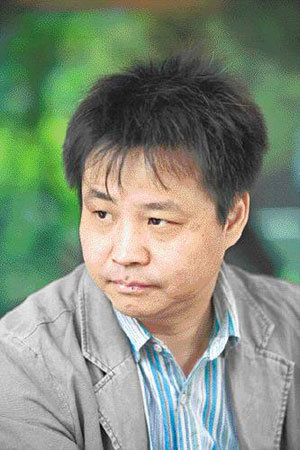Madness of Contemporary China

There was a time when people were beaten everyday on the streets until their bodies were covered in blood, just simply because they were landowners. There was also a time when people were able to buy everything they desired with money, including love. Its hard to believe that the two extreme times took place in succession. But it happened in China. The Cultural Revolution followed the waves of a socialist market economy accompanied by reforms and market expansion.
Brothers, written by Yu Hwa, is a story of two brothers, Lee Kwangdu and Song Kang, who lived through Chinas two turbulent periods. Yu Hwa, one of the most prominent contemporary writers in China, is also well-known in Korea through his works such as To Live and Chronicle of a Blood Merchant. His latest novels represent Chinas finest epic novels, which have been gaining popularity amongst Korean readers.
Brothers begins with a scene in which 14-year-old Lee Kwangdu is caught peeping at womens buttocks in a public bathroom. His mother scolds him saying, Like father, like son. In fact, Lees biological father was drowned to death in a traditional toilet while doing a similar thing. Although the accident forces Lee to grow up as a posthumous child, he soon gets a stepbrother as his mother marries her neighbor Song Beompyeong. They form a happy family. However, their happiness does not last long as Song is lynched by a crowd during the Cultural Revolution because his parents were wealthy landowners. His ailing mother also passes away, leaving Lee and his half-brother alone.
Although his mother doubts until her last moment whether Lee, a foul-mouthed trouble maker, will be able to survive in society without her, unlike his good-natured brother, Lee manages to overcome all the tribulations and becomes a successful businessman. The book dramatically describes the process of Lees becoming a millionaire by selling waste materials. Lee also turns his back on his brother whom he promised to help and share everything with as Song falls in love and marries Im Hong, a woman that Lee has been madly in love with.
The book portrays a madness that existed over the two chaotic times. The brutal treatment that Song Beompyeong receives from the hands of the general public during the revolution is absolutely horrendous. Yu shows how horrible the wind of madness can be by explicitly describing such horrifying scenes without ambiguities. What the writer is openly criticizing in the book is contemporary Chinese society, which is now void of ethics but filled with greed. Lee does not hesitate to do any kind of dirty job to earn money, pays any woman to sleep with and even takes his brothers wife away with money. The countless sex scenes and filthy ideas of making money remind us how hideous the world is that we are living in.
Although its a thick novel made up of three volumes, you can effortlessly tumble through the entire book. Even though each scene is not meticulously described, its story unfolds in an exceptionally rapid pace, showing off the writers marvelous writing skills. The most remarkable achievements of this book are the portrayal of Lee, whom we cannot hate despite his evil behaviors, and the recording of the eras of madness.
kimjy@donga.com







